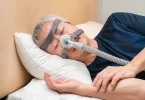Bed sores (also called pressure sores) are injuries to skin and underlying tissue resulting from prolonged pressure on the skin.
It has become an increasingly common problem. The best evidence available indicates that over 1 million people suffer from bed sores in the United States alone. As a result there has been a groundswell of interest in different methods of bed sore treatment. While there are some good pieces of advice floating around, there are also many bad pieces of advice. This guide will help you determine the best way to approach bed sores treatment and care.
It has become an increasingly common problem. The best evidence available indicates that over 1 million people suffer from bed sores in the United States alone. As a result there has been a groundswell of interest in different methods of bed sore treatment. While there are some good pieces of advice floating around, there are also many bad pieces of advice. This guide will help you determine the best way to approach bed sores treatment and care.
1)Repositioning
One of the first steps to treating bed sores or any other kind of pressure sore is to engage in repositioning in order to keep pressure off of the wound. There are many different tools to help with this, including different types of pillows, mattresses, rails, and supports. In fact, you can find guides and helpful advice for different kinds of repositioning and techniques for repositioning in different conditions. The goal of this treatment aspect is to prevent the wound from being aggravated by continued pressure.
One of the first steps to treating bed sores or any other kind of pressure sore is to engage in repositioning in order to keep pressure off of the wound. There are many different tools to help with this, including different types of pillows, mattresses, rails, and supports. In fact, you can find guides and helpful advice for different kinds of repositioning and techniques for repositioning in different conditions. The goal of this treatment aspect is to prevent the wound from being aggravated by continued pressure.
*Tip: It’s typically recommended to reposition every 15-20 minute, but this can be somewhat unrealistic. Consider using an alternating pressure pad to help manage vulnerable pressure points and reduce the amount of manual movement.
2)Keep Clean
One of the most common problems people have with bed sores is the high risk they have of infection. This is a result of the open wound on the skin, combined with the fact that those experiencing pressure wounds may be unable to properly clean themselves. As a result, bed sores and pressure sores can become infected and lead to even more difficult complications. If the bed sore has not broken the skin yet then it can be addressed with warm water and mild soap. The wound should also be monitored to ensure it does not get worse.
One of the most common problems people have with bed sores is the high risk they have of infection. This is a result of the open wound on the skin, combined with the fact that those experiencing pressure wounds may be unable to properly clean themselves. As a result, bed sores and pressure sores can become infected and lead to even more difficult complications. If the bed sore has not broken the skin yet then it can be addressed with warm water and mild soap. The wound should also be monitored to ensure it does not get worse.
If the wound has broken the skin it will need to be properly dressed and bandaged. It is important to use the doctor recommended dressing method and equipment, as some dressings are more effective than others, depending on the location and severity of the wound. If a wound requires dressing make sure to change the dressing on a regular basis to help keep the wound clean and avoid infection.
One of the most important things to remember about keeping clean is that the person suffering bed sores should not be the only recipient of cleaning. It is important to remember to frequently change clothes and bedding, as germs that cause infections can reside there as well.
*Tip: If the patient is also dealing with incontinence, it’s imperative to develop proper care regimens to keep the infected areas clean
3)Lifestyle Changes
The characteristics of your lifestyle can have a large impact on bed sores, especially your diet. Foods that dry out the skin and the body such as those which are high in salt or contain many preservatives will aggravate pressure sores. Make sure that you are getting enough skin-healthy nutrition. This should include foods that are high in vitamins A, C, and E. Some foods that might be worth considering are oranges, nuts, olives, tomatoes, and strawberries. A qualified healthcare provider can help design an ideal diet.
The characteristics of your lifestyle can have a large impact on bed sores, especially your diet. Foods that dry out the skin and the body such as those which are high in salt or contain many preservatives will aggravate pressure sores. Make sure that you are getting enough skin-healthy nutrition. This should include foods that are high in vitamins A, C, and E. Some foods that might be worth considering are oranges, nuts, olives, tomatoes, and strawberries. A qualified healthcare provider can help design an ideal diet.
*Tip: Purchase vitamin supplements or nutritional drinks over the counter which help to promote tissue growth and repair. (Be sure to consult with your doctor)
Beating Bed sores
Bed sores can become extremely painful and dangerous to one’s health. If you’re dealing with the risk of bed sores it is important to talk to your doctor and start to develop an appropriate care regimen. With a few adjustments you can be on your way prevention. Get help right away and don’t let the infected area progress any further. Get the treatment and care you deserve. By following these general guidelines you will soon find yourself on the way to an enhanced quality of life.
Bed sores can become extremely painful and dangerous to one’s health. If you’re dealing with the risk of bed sores it is important to talk to your doctor and start to develop an appropriate care regimen. With a few adjustments you can be on your way prevention. Get help right away and don’t let the infected area progress any further. Get the treatment and care you deserve. By following these general guidelines you will soon find yourself on the way to an enhanced quality of life.
Author’s bio
Jessica Hegg is the content manager at ViveHealth.com. Interested in all things related to a healthy lifestyle, she works to share valuable information that aims to improve the quality of life for others. You can also find her on Facebook.
Jessica Hegg is the content manager at ViveHealth.com. Interested in all things related to a healthy lifestyle, she works to share valuable information that aims to improve the quality of life for others. You can also find her on Facebook.
Please follow and like us:








